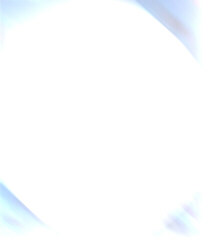 October 06
October 06
God on Ecstasy
by Raucha Mayim
p. 2 of 2
The moon reflected the hidden sun’s luminescence such that something more sensational than light poured from the cosmos, and hummed a nigun to the shore. The sea wove the silver ribbons scattered upon its surface with patience, intelligence and skill. My feet drank in the unique blessing of each clump of salt, pebble and grain of sand. The mountains yawped like old Whitman to the star-filled ether above.
 Then, though it was winter, I entered the sea. As I waded toward the open horizon, though the hypersalinated waters continued to support their cleansing, painful crystals, they also had other surprises in store for me – specifically, the Dead Sea’s famed mineral-rich mud deposits. My toes found one of mother earth’s infinite wombs and wriggled deep into her mystery. As my toes, then ankles, then calves went in and in, I kneaded the ground like a nursing kitten that yearns for milk. Deep, warm, slimy, my feet explored it. Though only part of me touched her depths, my entire body tingled with this joy. This unmistakable feeling of transformative union, almost sexual in nature, became a kind of wordless knowledge.
Then, though it was winter, I entered the sea. As I waded toward the open horizon, though the hypersalinated waters continued to support their cleansing, painful crystals, they also had other surprises in store for me – specifically, the Dead Sea’s famed mineral-rich mud deposits. My toes found one of mother earth’s infinite wombs and wriggled deep into her mystery. As my toes, then ankles, then calves went in and in, I kneaded the ground like a nursing kitten that yearns for milk. Deep, warm, slimy, my feet explored it. Though only part of me touched her depths, my entire body tingled with this joy. This unmistakable feeling of transformative union, almost sexual in nature, became a kind of wordless knowledge.
Yadati.
I was entering Pache Mama in her dangerous embrace – the same firm, but comforting grasp with which she has, and will always, reclaim into her depths all she has ever borne forth, living and dead, manufactured and natural. She had taught me the meaning behind Shiva Nataraja’s cosmic dance, as she spun me in hers.
I no longer had boundaries left to monitor, though somewhere in the back of my mind was the fear she would let me sink too far. That I somehow wouldn’t return, wouldn’t ever again be the same.

My body writhed in ecstasy.
My legs danced in holy abandon.
I embraced myself, in awe of all touch.
This sensed state of interpenetration,
this mental state of non-dualism,
made of “me” a cosmic conduit.
I was awake through love.
All normally hidden in the separate realms
was unveiled and whole.
My vocabularies for religious experience piped up in unison, once again structuring my observations: upaya (Sanskrit for “skillful means”) had come to penetrate and awaken the receptive prajna (“wisdom”); the male God had come, again, this Shabbos, to join in sexual union with Shechinah, his goddess-consort. It was a taste, as the sages say of Shabbas, of the olam haba (“the world to come”). My body, pierced by the crystals and thrusting into the mud bottom of the sea, was able to play both roles. The feminine and the masculine were unified in my queer body.
It's now many months later. I have a file called “Reminders” on my computer, uttering through two veiled statements that I may have been closer to understanding what Shabbat was about that particular night than after my entire year of study in Israel, all the Shabbatot I celebrated before it, and even those I might observe afterwards:
I'm feeling so alive; I don't want to play dead.
Judaism is all about sex with God.
The way that the Divine entered my body, and I Its, allowed me to feel the transformative power of nature and the earth in a way I never had before. A few weeks later, I took Beliefnet’s “Belief-O-Matic”, which – based on a series of questions about your spiritual practices and beliefs – tells you what existent religion yours best fits into. It was hardly a surprise when, of its twenty results, “Neo-paganism” was my second-best match (right after Buddhism).
Still, I wonder now whether the feeling of revelation was just a result of the drug playing with me. Or did the drug actually open me to a deeper reality?
Last summer, I followed my newly named neo-pagan self to a shamanic fire ceremony, where we were instructed to choose something we wanted to let go of, and symbolically cast it into the fire. As the ceremony began, many people around me, entranced with the drum and seemingly possessed by the fire spirit, entered an altered state, danced or shook. Despite my growing discomfort with the idea of submitting to a fire deity, the shaman invited me into the circle twice, and I gave in. Amidst the sounds of drums, I swayed in indecision, but – motivated by a desire to get more space around, and ultimately renew our intimacy – finally infused my stick with the intention to let go of my relationship to God.
 Lying on a bench after the ceremony, I silently cried for help out of my confusion as shooting stars broke through the atmosphere in a fiery glow. Rather than feeling like some truth had been revealed to me, I was left with the sense that the ground had been torn out from under me. This ritual cut me off, not only from the dynamic, interpenetrative God I loved, but also the God evoked by the title tzuri: my “rock”. My refuge. The stabilizing force in my life. I realized then my need to relate to holiness both as a grounding and transcendent force. But even more than a desire for balance, that ceremony reminded me that, though I’ve sought intimacy with God through Sufi zikr, drum circles, Buddhist meditation and drug experiences, these paths have been yoked together into one journey: seeking my Beloved.
Lying on a bench after the ceremony, I silently cried for help out of my confusion as shooting stars broke through the atmosphere in a fiery glow. Rather than feeling like some truth had been revealed to me, I was left with the sense that the ground had been torn out from under me. This ritual cut me off, not only from the dynamic, interpenetrative God I loved, but also the God evoked by the title tzuri: my “rock”. My refuge. The stabilizing force in my life. I realized then my need to relate to holiness both as a grounding and transcendent force. But even more than a desire for balance, that ceremony reminded me that, though I’ve sought intimacy with God through Sufi zikr, drum circles, Buddhist meditation and drug experiences, these paths have been yoked together into one journey: seeking my Beloved.
Though I identify with the transformative power of earth-based – and other modes – of spirituality, I still feel that I ultimately need to claim its roots within my own tradition. The union I felt with the earth at the Dead Sea had been a kind of sacred partnership with the Divine. The fire ceremony felt more like possession by, and submission to, a spirit. So it wasn't just the drug; or rather, the drug enabled me to see a truth that other rituals did not.
Taking Ecstasy at the Dead Sea showed me ways to reveal rich worlds within my own tradition. It taught me that I am easily able to reach ecstatic heights. But more important, perhaps, it showed me my own capacity for receiving deep insights when I feel safe enough to open myself to the awesome unfolding of life around me. It's ironic that my encounter with the Divine took place at the site of Sodom and Gomorra, cities of "sin," but also, for me, part of my sexual heritage as a boundary crosser, someone who can experience both the penetrative and receptive qualities of God in his body. I look forward, someday, to my return to these cities on a plain, unveiled to me as holy beyond words.









